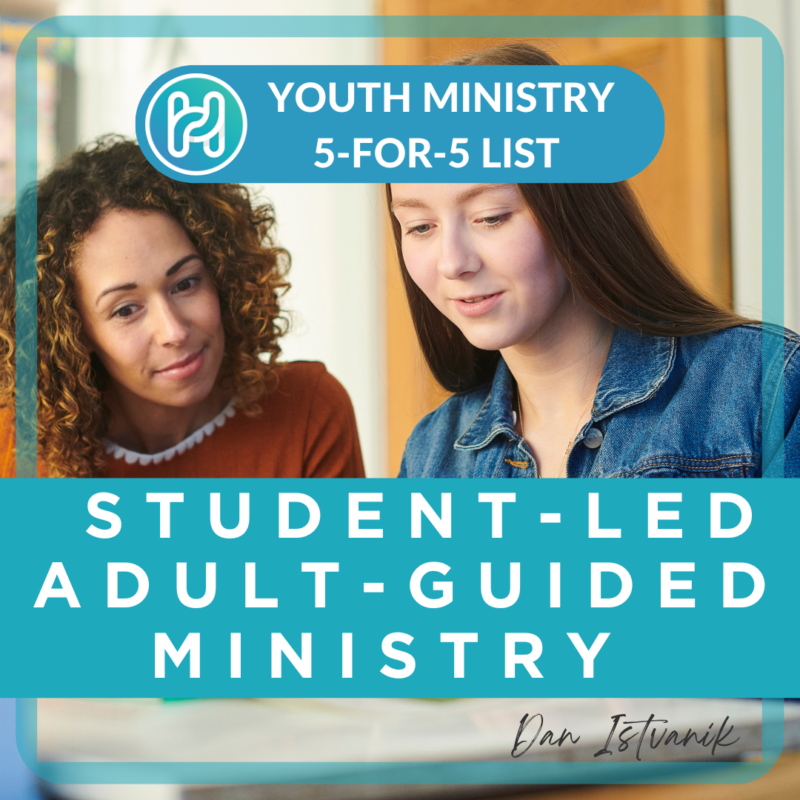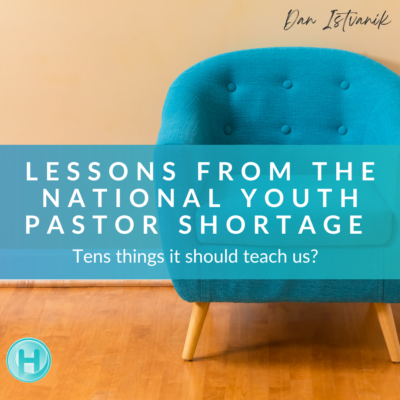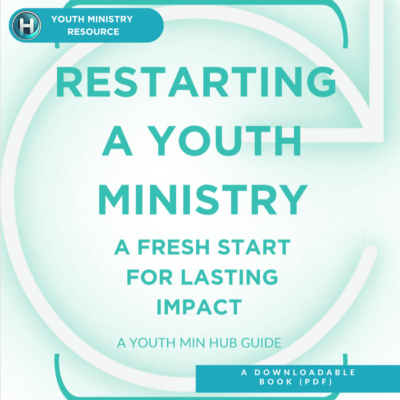Youth Ministry Hints, Youth Ministry Resources, Youth Ministry Thoughts
Student-Lead, Adult Guided Ministry
A student-led, adult-guided youth ministry typically embodies the following five characteristics:
1. Youth Leadership: Students take on active leadership roles, such as planning events, being a student-leader in small groups, or organizing service projects. They are encouraged to contribute to the ministry’s direction and activities using their gifts and talents.
2. Mentorship and Guidance: Adults provide mentorship and guidance while students lead. Adults act as advisors, offering wisdom and support without taking full control, helping students develop leadership skills and spiritual maturity.
3. Shared Vision and Goals: Both students and adults collaborate to establish a shared vision and goals for the ministry. This ensures that the ministry is aligned with the church’s overall mission while remaining relevant and engaging to students and their friends.
4. Empowerment and Ownership: The ministry builds on the students’ sense of ownership. They are empowered to make decisions, take risks, and learn from their experiences, which helps them grow in confidence and responsibility.
5. Relational Focus: The ministry emphasizes building strong relationships between students and adults. This relational dynamic helps create a supportive environment where students feel valued, heard, and encouraged in their faith journey.
This all leads to students wanting to invite friends to something THEY are leading, not something that is being put on for them.
A student-led, adult-guided youth ministry blends youth leadership with adult mentorship to empower students while ensuring spiritual growth and guidance.
Here’s what it looks like in my ministries over the years:
1. Youth Leadership in Action
- Student-Led Worship and Bible Studies: Students are invited to lead in planning and facilitating worship services. They also have the opportunity to plan and lead a lesson. They have input into the themes, select songs, prepare messages, and even given the opportunity in small groups to lead discussions.
- Event Planning and Execution: The youth are involved in the organizing of events, such as retreats, mission trips, or other big activities. They can brainstorm ideas, handle logistics, and manage the event’s flow, with adults providing oversight and resources.
- Peer Mentoring: Older or more spiritually mature students mentor younger students or get involved in children’s ministry as well; this can even create a peer-support network beyond the walls of your ministry at school or other places.
2. Adult Mentorship and Support
- Guidance and Coaching: Adults act as coaches rather than directors, offering advice and feedback while allowing students to make decisions. They help students navigate challenges and encourage them to take ownership of their roles.
- Safety and Accountability: Adults ensure that all activities are safe and align with the church’s mission, values, and, most importantly, the budget! You and other adults provide a safety net, stepping in only when necessary to correct course or prevent harm.
- Spiritual Oversight: Adults help maintain theological soundness in the ministry. They guide discussions and teachings to ensure they are biblically accurate and spiritually correct.
3. Collaborative Vision and Goal Setting
- Combined Planning Meetings: Students and adults meet regularly to discuss the ministry’s direction, set goals, and evaluate progress. Everyone’s input is valued, and decisions are made collaboratively.
- Shared Responsibilities: While students may lead specific aspects of the ministry, adults handle administrative tasks, such as budgeting or liaising with the church leadership, ensuring that the ministry runs smoothly.
4. Empowerment and Ownership
- Leadership Development Programs: The ministry includes training programs or workshops focused on leadership, public speaking, event planning, and other skills. Adults facilitate these programs to equip students for their roles.
- Responsibility and Decision-Making: Students can learn to be entrusted with real responsibilities, like managing a budget for a project or leading a mission team. They are encouraged to make decisions, learn from their mistakes, and celebrate their successes.
5. Relational and Community-Oriented
- Strong Intergenerational Relationships: Adults and students build strong mentoring relationships beyond ministry activities. These relationships are based on mutual respect, trust, and a shared commitment to spiritual growth.
- Inclusive Environment: The ministry fosters a welcoming and inclusive atmosphere where every student feels valued and has an opportunity to contribute, regardless of their experience or background.
In the Student-Led, Adult-Guded Ministry- students are not just PARTICIPANTS but active and engaged LEADERS while adults guide and support them, ensuring the ministry is effective, impactful, and spiritually nurturing.




